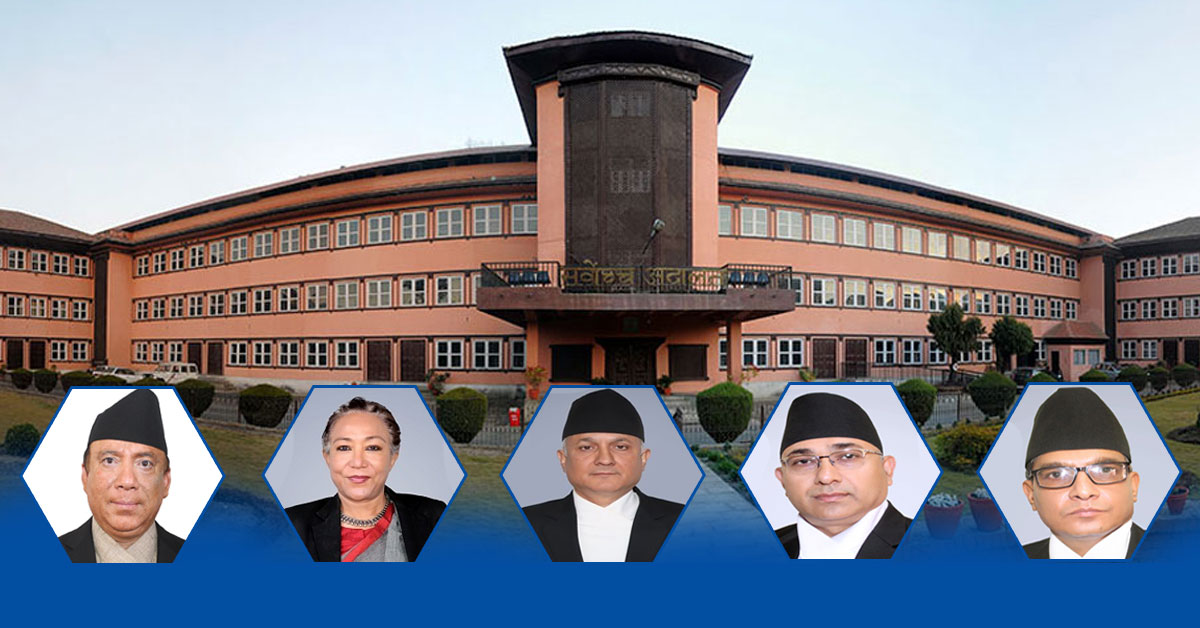

KATHMANDU: Nepal’s Supreme Court Constitutional Bench has quashed a writ petition challenging the government’s initiative to establish a second stock exchange, clearing the final legal hurdle for its implementation.
The Constitutional Bench, led by Chief Justice Prakash Man Singh Raut and comprising Justices Sapana Pradhan Malla, Kumar Regmi, Hariprasad Phuyal, and Dr. Manoj Kumar Sharma, quashed the petition filed against the licensing of a new stock market. The decision is final and cannot be appealed.
Advocate Krishna Bahadur Thapa had filed the petition against the Securities Board of Nepal (SEBON), the Ministry of Finance, and the Office of the Prime Minister and Council of Ministers, arguing that the move violated multiple legal provisions, including the Securities Act 2023 and Articles 1, 46, and 162 of the Constitution. However, the court ruled in favor of issuing new licenses, removing the last major obstacle.
The debate over Nepal’s second stock exchange has been ongoing since SEBON announced its plan on September 18, 2022. The proposal faced scrutiny from the Parliamentary Finance Committee, the Cabinet, Supreme Court and study panel before finally receiving Supreme Court approval—first from a double bench to now from the Constitutional Bench.
In April 2023, then-Prime Minister Pushpa Kamal Dahal halted the licensing process. The government later formed a panel led by former Nepal Rastra Bank Deputy Governor Chinta Mani Siwakoti to assess the feasibility of a second stock exchange. The Siwakoti committee recommended introducing a competitor to NEPSE and restructuring the existing stock market.
The Supreme Court had previously paved the way for an alternative exchange on April 9, 2023, when a joint bench of Justices Anil Kumar Sinha and Sushma Lata Mathema ruled in favor of issuing new licenses. However, the court also directed the government to conduct further studies before granting approvals.
Legal challenges continued into October and November 2023, when Advocates Deepak Bikram Mishra and Amrit Kharel filed separate petitions arguing that the amended licensing regulations did not align with existing laws. These cases were also dismissed.
What’s Next for Nepal’s Stock Market?
With all legal hurdles removed, SEBON is now expected to grant a license for a second stock exchange, which will operate alongside NEPSE, Nepal’s only stock market since 1994. Critics argue that NEPSE has suffered from slow growth, outdated technology, and inefficiencies due to a lack of competition.
Currently, NEPSE is 58.66% owned by the government, with other stakeholders including Nepal Rastra Bank (9.5%), Employees Provident Fund (10%), and Rastriya Banijya Bank (11.23%). Nepal Rastra Bank has sought to divest its shares, but the government remains the dominant shareholder.
Despite initial resistance, the introduction of a second exchange aligns Nepal with global market trends, where multiple stock exchanges foster greater efficiency, competition, and innovation. With the Supreme Court’s ruling, SEBON may now proceed with licensing, potentially unlocking new opportunities for Nepal’s capital markets in the years ahead.